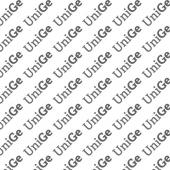L'Università di Genova protagonista nella cooperazione internazionale: da Tempus a Erasmus+. QAINAL - MIND - MARUEEB
L'Università di Genova protagonista nella cooperazione internazionale: da Tempus a Erasmus+. QAINAL - MIND - MARUEEB
Al fine di contribuire al processo di adesione dell’Albania e di avvicinamento del Kosovo al c.d. «acquis comunitario», il progetto «Strategic Support on Strengthening the Quality Assurance Structures at the Private Higher Education Institutions in Albania - QAINAL» nell’ambito del programma comunitario CBHE Erasmus+ è stato finanziato dalla Commissione Europea.
QAINAL coinvolge un consorzio di 12 partner: 6 Istituzioni in Albania, 3 in Kosovo e 3 Università in UE: il coordinatore del progetto Università di Salisburgo “Paris Lodron" in Austria, la "Universitatea Politehnica din Bucuresti" in Romania e l’Ateneo Genovese.
L'obiettivo generale di tale progetto triennale è quello di creare e supportare processi e meccanismi di garanzia della qualità al fine di garantire una gestione efficace, nonché di migliorare l'insegnamento e l'apprendimento presso le istituzioni private di istruzione superiore in Albania.
Per ulteriori info sul progetto Eramus+ «QAINAL» è possibile contattare il coordinatore del progetto, Angelo Musaio, capo Servizio Relazioni Internazionali dell’Ateneo, intstrat@unige.it
ERASMUS+ PROGRAMME
KEY ACTION 2 – Capacity Building in Higher Education
PROJECT no. 561510-EPP-1-2015-1-AT-EPPKA2-CBHE-JP
"Strategic Support on Strengthening the Quality Assurance Structures at the Private Higher Education Institutions in Albania (QAINAL)"
 In June 2014, the European Council granted the candidate status to Albania.
In June 2014, the European Council granted the candidate status to Albania.
The priorities for EU financial assistance to support the Albania on its path to accession are set out in the “Indicative Strategy Paper for Albania” for the period 2014-2020, adopted by the EU Commission in the framework of the “Instrument for Pre-accession Assistance (IPA II)”.
This “Strategy Paper”, developed in close cooperation and partnership with the Albanian government, translates the political priorities of the EU enlargement policy into key areas where financial assistance is most useful to meet the accession criteria.
According to such official planning document, the “Education, Employment and Social Policies” sector requires support, notably for achieving inclusive growth, and it is focused to the need to clearly establish the challenges of the labour market and design relevant capacity-building accordingly. It entails that Albania has to improve the quality and relevance of all levels of Education, and develop its skill base in line with labour market needs; therefore, good governance of this sector needs strengthening.
Concerning Kosovo, among the several reforms required for the approximation process to the Community acquis, the “Strategy Paper for Kosovo (2014-2020)” prioritizes both the improvement of the labour market functioning and the promotion of education standards, skills relevance and qualifications of the labour force.
As Kosovo has the youngest population in Europe with 50% under 25 years, human capital plays a crucial role in ensuring sustainable socio-economic development, but the Education sector is still affected by the lack of adequate facilities and quality assurance (QA).
In order to contribute to the outlined strategies, the Erasmus+ "QAINAL" joint project was financed by the European Commission. This 3-year project, on-going until 14th October 2018, involves a consortium of 12 partners, composed of 6 Institutions in Albania (5 Universities and the Ministry of Education), 3 in Kosovo and the following 3 EU Universities: the Project Coordinator “University of Salzburg - Paris Lodron University” in Austria, the “Universitatea Politehnica din Bucuresti” in Romania, and Genoa University.
The wider project objective is to establish and support QA processes and mechanisms to ensure effective management, and enhance teaching and learning at the private higher education institutions in Albania. The work-plan is based upon the following specific objectives:
- to establish / support the QA structures / offices;
- to provide training on study programme design based on labour market needs;
- to draft action plans supporting the of QA and enhancement in teaching and management;
- to modernize the infrastructure of QA and develop QA guidelines.
For more info on the project «QAINAL», please contact the local project coordinator, Angelo Musaio, head of the International Relations Service.
intstrat@unige.it
Angelo Musaio
Michela Parodi
International Relations Service
This project is funded with support from the European Commission.
This info reflects the views only of the authors, and the Commission cannot be held responsible for any use, which may be made of the information contained therein.
Il progetto «Management – Innovation – Development (MIND)» è stato finanziato dalla Commissione Europea nell'ambito del programma comunitario CBHE Erasmus+, al fine di contribuire allo sviluppo dell’imprenditorialità dei laureati e alla creazione di start-up in tre Stati dell’Asia Centrale (Kyrgyzstan, Tajikistan e Uzbekistan - KG, TJ, UZ).
MIND coinvolge un consorzio di 15 partner: 10 Università centro-asiatiche e le seguenti 5 Università in UE: il coordinatore del progetto "Universidad de Las Palmas de Gran Canaria” (Spagna), “Universitat Politécnica de Catalunya” (Spagna), la “Slovak University of Technology in Bratislava” (Slovacchia), “Instituto Superior Tecnico de Lisboa” (Portogallo) e l'Università di Genova.
L'obiettivo di tale progetto triennale è quello di rafforzare la cooperazione con il Centro Asia nel collegamento tra istruzione superiore e mercato del lavoro, attraverso la creazione di “Youth Centres” nelle Università Partner al fine di promuovere l'imprenditorialità e le azioni di innovazione tecnologica.
Per ulteriori info sul progetto Eramus+ «MIND» è possibile contattare il coordinatore locale del progetto, Angelo Musaio, capo Servizio Relazioni Internazionali dell’Ateneo, intstrat@unige.it
ERASMUS+ PROGRAMME
KEY ACTION 2 – Capacity Building in Higher Education
PROJECT no. 561539-EPP-1-2015-1-ES-EPPKA2-CBHE-JP
“Management - Innovation - Development (MIND)”
 «Management – Innovation – Development MIND» project, co-financed by the European Commission under the “Erasmus+ Programme – KA2 Capacity Building in Higher Education”, involves a consortium composed of 15 partners:
«Management – Innovation – Development MIND» project, co-financed by the European Commission under the “Erasmus+ Programme – KA2 Capacity Building in Higher Education”, involves a consortium composed of 15 partners:
- 10 Universities in Central Asia, precisely in Kyrgyzstan, Tajikistan and Uzbekistan (KG, TJ, UZ);
- 5 EU Universities (University of Las Palmas de Gran Canaria, Spain - the project coordinator; Universitat Politécnica de Catalunya, Spain; Slovak University of Technology in Bratislava, Slovak Republic; Instituto Superior Tecnico de Lisboa, Portugal; University of Genova).
The overall framework of the cooperation context with Central Asia refers to the “EU - Central Asia Strategy for a New Partnership” adopted in June 2007 and marking an upgrade in the relationship with this Area. By 2007 these relations had developed significantly, revealing closeness of values and economic & security interests. Thanks to EU co-funding, action-oriented initiatives, combining regional and bilateral approaches, have been implemented in the identified priority areas, such as: common security threats, rule of law, education, environment and water.
In KG, TJ and UZ, labour-surplus Countries, one of the most important aspect of the mentioned Strategy is the establishment and development of a strong system of SMEs characterized by innovation technology, market culture and values consistent with EU standards.
Coherently with such policy, the main objective of MIND Project is to help Central Asian education reform through the creation of Youth Centres in the Partner Universities, in order to promote entrepreneurship and increase the level of innovation and technology for the Central Asian socio-economic development.
Nine fully-equipped Centres will offer 900 students a two-year business education training program, on a blended learning approach, to empower them to strive in setting and achieving ambitious goals for their future as leaders.
This 3-year project, on-going until 14th October 2018, will also create an interactive web-platform where the students of the involved Universities can upload their business plans and proposals for potential investors or any other interested parties to develop start-ups. Furthermore, MIND will develop a practice of annual Round Tables within the Partner Universities where young entrepreneurs can meet potential investors.
Thanks to its long experience of “Tempus” Cooperation in Central Asia, the University of Genova is the lead partner for “MIND” sustainability strategy activities, such as mapping stakeholders and providing meetings with the Central Asian National Authorities.
For more info on the project «MIND», please contact the local project coordinator, Angelo Musaio, head of the International Relations Service.
intstrat@unige.it
Angelo Musaio
Michela Parodi
International Relations Service
This project is funded with support from the European Commission.
This info reflects the views only of the authors, and the Commission cannot be held responsible for any use, which may be made of the information contained therein.


